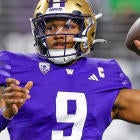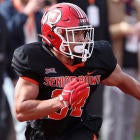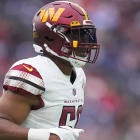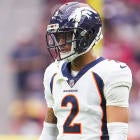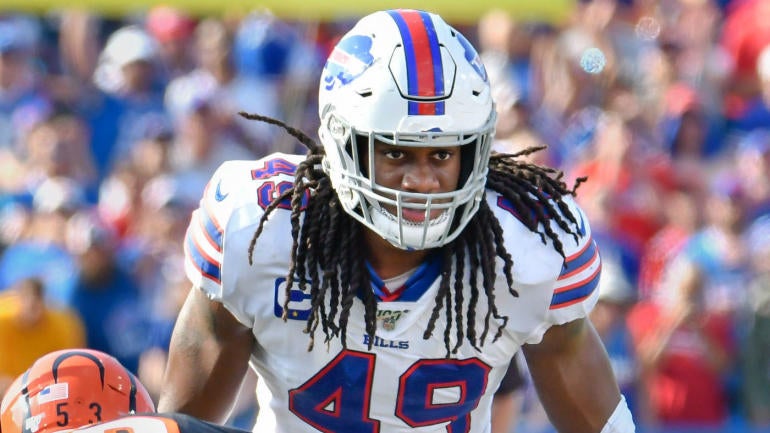
No team entered the NFL offseason with more salary-cap space than the Chicago Bears. On Monday, the Bears began spending that money.
According to a report from NFL Media, the Bears are signing former Buffalo Bills linebacker Tremaine Edmunds and former Tennessee Titans guard Nate Davis each to a three-year contract. Davis' deal is worth $30 million, $19.25 million of which is guaranteed, per Mike Garafolo. Per ESPN, Edmunds' contract is a four-year, $72 million deal that includes $50 million in guarantees.
Davis spent the past four seasons starting at guard for Tennessee, which selected him in the third round of the 2019 NFL Draft. Last season, he checked in as Pro Football Focus' 17th-highest graded guard, out of the 85 who played at least 270 snaps. He joins an offensive line that remains a work in progress, with the Bears expected to pursue more help both in free agency and in the draft.
Edmunds was a first-round pick of the Bills back in 2018, and immediately became a high-level starter for the team. He made back-to-back Pro Bowls in 2019 and 2020, though he has been a bit overshadowed by now-former teammate Matt Milano over the past couple seasons. Still, Edmunds is just 24 years old (he turns 25 in May) and likely has several years of quality linebacker play left in him. He should be a valuable, versatile piece for Matt Eberflus' defense.
Last season, the Bears traded Roquan Smith to the Baltimore Ravens, and he signed a five-year, $100 million deal to stay in Baltimore. Chicago distributed almost the same money between two players, having signed former Eagles linebacker T.J. Edwards earlier Monday.
Splurging for players at non-premium positions is not necessarily the wisest way to spend in free agency, but the Bears do have the cash to burn and needs at almost every position. Chicago began overhauling the back end of its defense last year with the draft picks of Jaquan Brisker and Kyler Gordon, and now must continue adding talent along the defensive front to free those back-seven players to make plays.














